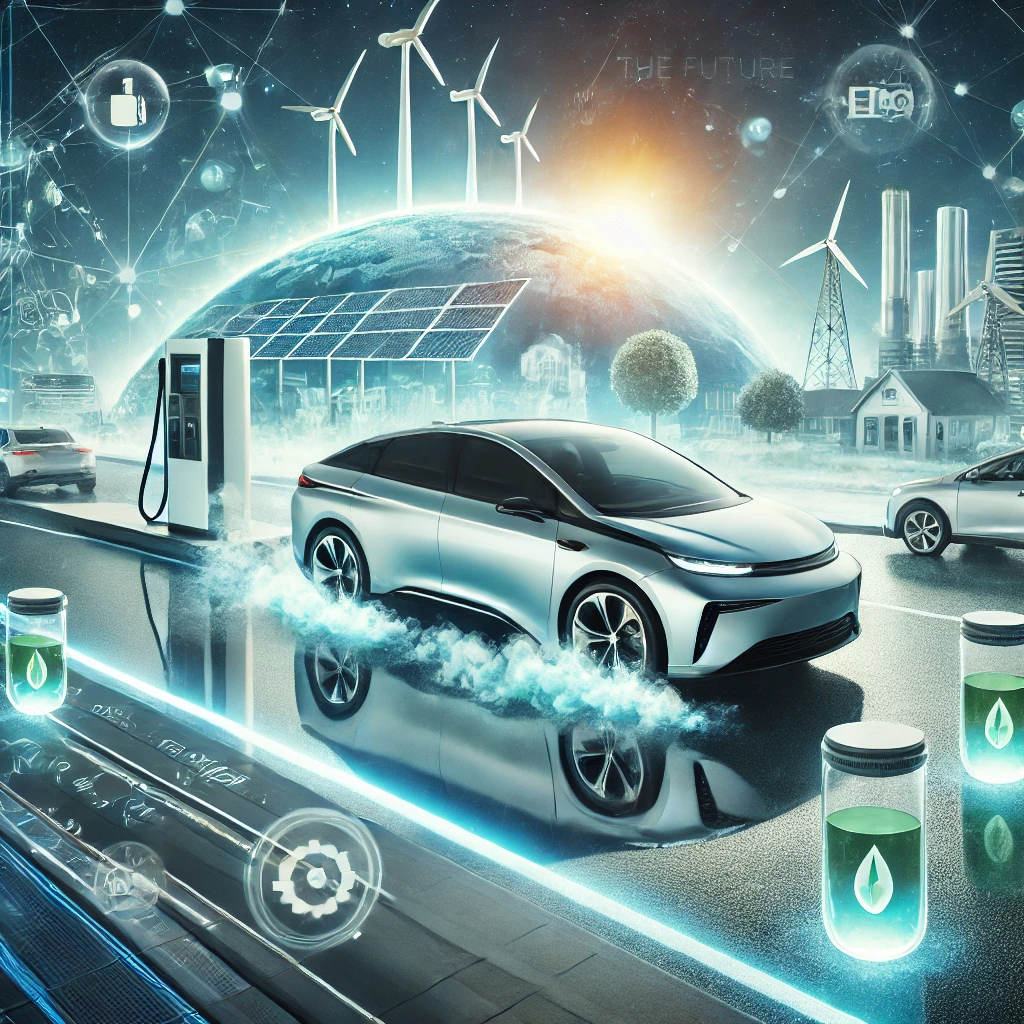
Hydrogen-Powered Cars: Are They the Future of Transportation?
Exploring the role of hydrogen fuel cell vehicles in a sustainable, energy-efficient future.
Introduction: The Shift Towards Sustainable Transportation
The world is racing towards sustainable solutions to combat climate change, and one major area of focus is transportation. As we seek climate change solutions and ways to reduce our carbon footprint, hydrogen-powered cars are stepping into the spotlight. But are they truly the future of transportation?
What Are Hydrogen-Powered Cars?
Hydrogen-powered cars, also known as fuel cell electric vehicles (FCEVs), use hydrogen gas to generate electricity. Unlike traditional internal combustion engines, they produce zero emissions—only water vapor. This makes them a strong contender in the push for green technology reviews and cleaner mobility.
How Do Hydrogen Fuel Cell Cars Work?
The Science Behind Hydrogen Fuel Cells
Hydrogen cars use a fuel cell stack to convert hydrogen into electricity. The process involves:
- Hydrogen Storage: Compressed hydrogen gas is stored in high-pressure tanks.
- Electricity Generation: Hydrogen reacts with oxygen in the fuel cell, producing electricity.
- Powering the Vehicle: The electricity powers the motor, moving the car.
- Byproduct: The only emission is water vapor, making it an environmentally friendly option.
Benefits of Hydrogen-Powered Cars
Why should we care about hydrogen-powered vehicles? Here are some major benefits:
1. Zero Emissions: A Climate Change Solution
Unlike gasoline and diesel cars, hydrogen cars produce no harmful emissions—just clean water vapor. This makes them a promising player in climate change solutions and air pollution reduction.
2. Fast Refueling Time
Compared to electric vehicles, which take hours to charge, hydrogen cars refuel in minutes—similar to gas-powered vehicles. This convenience is a game-changer for long-distance travel.
3. Longer Driving Range
Hydrogen vehicles typically offer a longer driving range compared to battery electric vehicles (BEVs), making them ideal for those who need to travel long distances without frequent stops.
4. Less Dependence on Rare Earth Metals
Unlike battery-powered cars, which rely on lithium and cobalt, hydrogen fuel cells require fewer rare earth metals, reducing environmental and ethical concerns related to mining.
Challenges Facing Hydrogen-Powered Cars
1. High Production Costs
Currently, hydrogen fuel cell technology is expensive to produce, making these vehicles pricier than electric or gasoline cars.
2. Lack of Hydrogen Infrastructure
Unlike electric charging stations, hydrogen fueling stations are scarce, making adoption difficult for consumers.
3. Hydrogen Production Challenges
Most hydrogen today is produced using fossil fuels, which contradicts its clean energy promise. The transition to renewable energy insights like solar and wind-powered hydrogen production is crucial.
Hydrogen vs. Electric Vehicles: Which is Better?
Is hydrogen superior to battery-powered electric vehicles (best electric vehicles 2025)? It depends on various factors:
- Charging Time: Hydrogen refuels faster than EVs charge.
- Infrastructure: EV charging stations are more widespread.
- Efficiency: Battery electric vehicles are more energy-efficient overall.
- Long-Term Sustainability: Hydrogen could play a key role in heavy transport like trucks and buses.
Future Innovations in Hydrogen Fuel Technology
The future of hydrogen-powered cars looks promising with ongoing developments in:
- Green Hydrogen Production: Using solar power for homes and wind energy to create hydrogen sustainably.
- Improved Storage Methods: Making hydrogen tanks safer and more efficient.
- Expansion of Infrastructure: Building more hydrogen refueling stations worldwide.
Final Thoughts: Is Hydrogen the Future of Transportation?
While hydrogen-powered cars have immense potential, they still have challenges to overcome. The key to a sustainable living future might not be a battle between hydrogen and electric vehicles but a blend of both technologies for different needs.
FAQs
1. Are hydrogen-powered cars better than electric cars?
It depends on the use case. Hydrogen cars refuel faster and have longer ranges, but electric vehicles are more energy-efficient and have better infrastructure.
2. How much does a hydrogen-powered car cost?
Currently, hydrogen cars are expensive, with prices ranging from $50,000 to $70,000. However, costs are expected to drop as technology advances.
3. Is hydrogen fuel safe?
Yes! Hydrogen is stored in reinforced tanks and undergoes rigorous safety testing, making it as safe as gasoline or electric vehicles.
4. Where can I refuel a hydrogen car?
Hydrogen fueling stations are still limited, mainly found in California, Japan, and parts of Europe. More stations are being built to expand accessibility.
5. Will hydrogen cars replace electric vehicles?
Not necessarily. Both technologies serve different purposes, and the future of transportation will likely involve a mix of electric and hydrogen-powered vehicles.